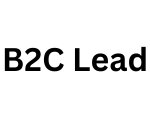Within each of these groups are greater than
You would never do that, would you? By the way, delirately not telling something can just as easily seen as lying. Read disinformation and how do we combat content pollution? Lies can also hidden in reasoning. Fallacies are then conscious or unconscious errors against logic and/or reason. ‘Soon I won’t allowed to write anything at all!’ – the slippery slope, an extreme inference. Or ‘so you think that everything I write must first pass a truth commission three times?’. With that so-called straw doll you represent someone’s point of view in a ridiculous way.
For examples of the many kinds of fallacies
I always turn to Paula Steenwinkels’ book Recognizing and refuting fallacies .) Don’t generalize Another category of big words are generalizations. They’re sneaky cause they look innocent, sound familiar, and seem true, on the surface. But they are simplifications of a much more Cape Verde Email List diffuse, complex reality. the hardworking Dutchman boomers and millennials the countryside, the Eastern Bloc, Africa the media, politics everyone, us, always, of course Such words are, by definition, simplistic. You can’t speak for “us” if you don’t know the whole “we” hind it.
Young people and the elderly women and men
Dutch people and foreigners the differences those tween the groups. aware of how diverse people are and keep that in mind when writing. A few practical tips Make sure you know as well as possible B2C Lead which (or what kind of) people read your texts. Don’t think in boxes of any kind. Address the reader as ‘you’ (or ‘you’) or make clever use of the plural so you don’t need ‘he/she’. Put the specific reader on 1. Not the desired reader and not yourself or your organization. Write in a perspective that your audience can identify with.

